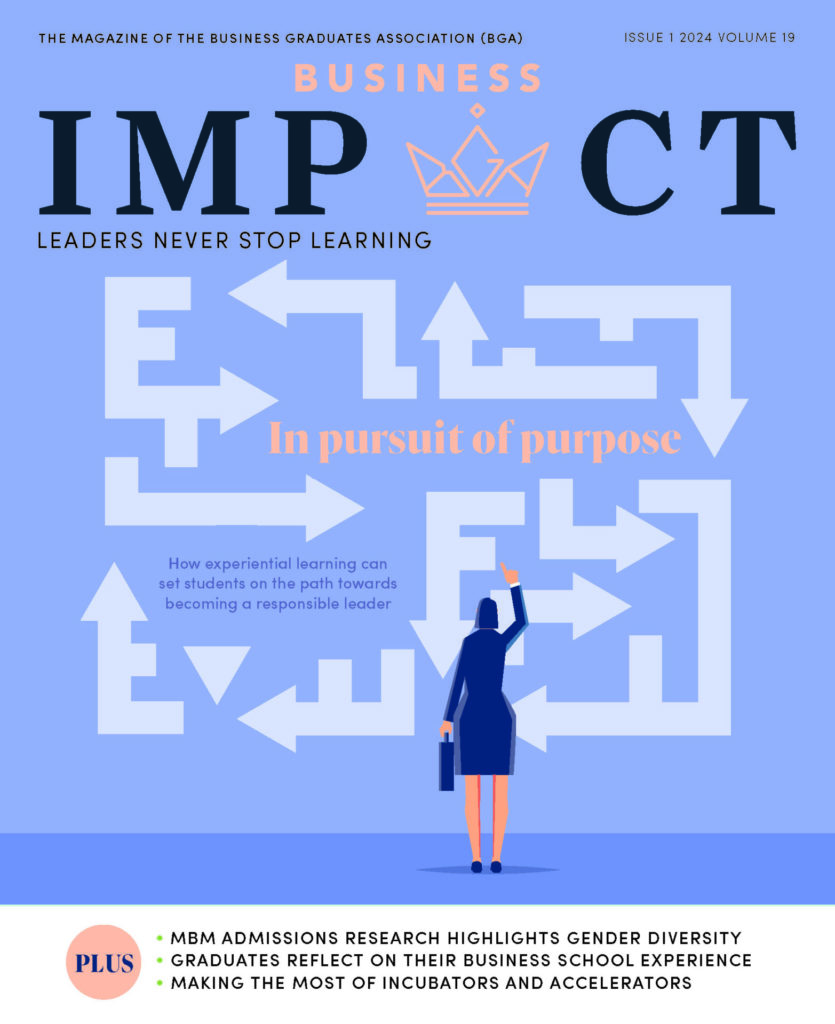Business schools have created links with the corporate world, building networks that allow them to come up with innovative solutions for some of their biggest challenges.
This includes attracting talent, as well as sourcing advisors and partners that will champion the business school with strategic alignment and cross-industry collaboration. After all, creation is an act of collaboration. However, schools still face mounting challenges that have been amplified by recent global events in an ever-changing world.
Enabling strategic collaboration
A session at the AMBA & BGA Business School Leaders Summit 2022 brought together organisations that share AMBA & BGA’s passion for building networks and have adopted a proactive, innovative approach to strategic collaboration.
Mireia Giné, Director of International Initiatives, Wharton Research Data Services (WRDS), opened the conversation, saying: ‘I think we can all recognise the potential benefits of building networks, and a portfolio of partners, to help businesses in different dimensions: business development, innovation, and responding faster to client needs.
‘It’s important for partnerships to find a “wow factor”; something you couldn’t do alone. It’s important to find the creativity that lights up and allows the potential to offer new services.
‘The important motivators for a partnership are co-creation, focusing on customer experience and bringing something different, enhancing scale-related issues, and fundamentally exchanging expertise,’ she added. ‘But it’s important to be clear on objectives and have owners on both sides to push forward. It’s important to have trust and common values, to deliver something for both sides.’
In terms of identifying partners, Ralitza Iordanova, Vice President, Global Partnerships, Luxury & Premium Brands, at hotel chain Accor, said: ‘We’re seeing that people don’t want to move forward with tactical offerings and want to be surprised by collaboration and organisations coming together. We need to consider the value of bringing organisations together, as well as ensuring we’re ensuring we’re partnering with like-minded brands to ensure our values are reflected.
‘In short, this is a must, and should be at the core of any partnership or collaboration. The people behind the brand are vital and stakeholders need to have aligned objectives and KPIs.’
Antonio Schuh, Senior Advisor, Arthur D Little Telecoms Practice, and former Director of Development & Projects, Strategic Alliances, Telefonica, added: ‘At Telefonica, in terms of partnerships, we identified a need and then carried out an analytical stage to ascertain organisations that were compatible with our ambition. This took 12 years, and after this we approached the [chosen organisations] with a joint proposal.’
He explained that these proposals comprised issues around recruitment, procurement and sales, and included other elements such as idiosyncratic behaviours. ‘The second part was an exchange of expertise,’ he said. ‘We needed to anticipate changes in the market, so we got together to exchange knowledge and identify challenges.
‘Ideation is important because we’re all providing different perspectives and points of view from organisations at different stages. We can identify needs we’re not aware of, and ways of fulfilling our needs – this is true co-creation.’
Iordanova went on to outline some challenges she’s faced. ‘Stakeholder management and aligning expectations is a challenge,’ she acknowledged. ‘We work across the world, so it’s vital to build partnerships that are flexible and adaptable to local market needs. There can be aligned goals, but when the rubber hits the ground, we rely on local teams, and they need to see the bigger vision. We need buy-in from every single stakeholder, not just at executive level.’
Sophie Trueman, Head of Business Development, Too Good To Go, also shared her experience. ‘Coming into a partnership as a scale-up is hard,’ she said. ‘It’s difficult to get a seat at the table. But partnerships must be done in collaboration, and there has to be a mutual benefit for both parties. Winning a partnership helps us, as a brand, to scale our offering, but offers our partners a sustainable method for food redistribution and attracts new custom.
‘Ask yourself “what is the mutual benefit? What can we both get from the partnership?”’ she advised. ‘For me, the sharing of knowledge and expertise is vital for a winning formula.’
Chair
Mireia Giné, Director of International Initiatives, Wharton Research Data Services (WRDS)
Panellists
Ralitza Iordanova, Vice President, Global Partnerships, Luxury & Premium Brands, Accor
Antonio Schuh, Senior Advisor, Arthur D Little Telecoms Practice and former Director of Development & Projects, Strategic Alliances, Telefonica
Sophie Trueman, Head of Business Development, Too Good To Go
This article is adapted from one which originally appeared in Ambition – the magazine of the Association of MBAs.







